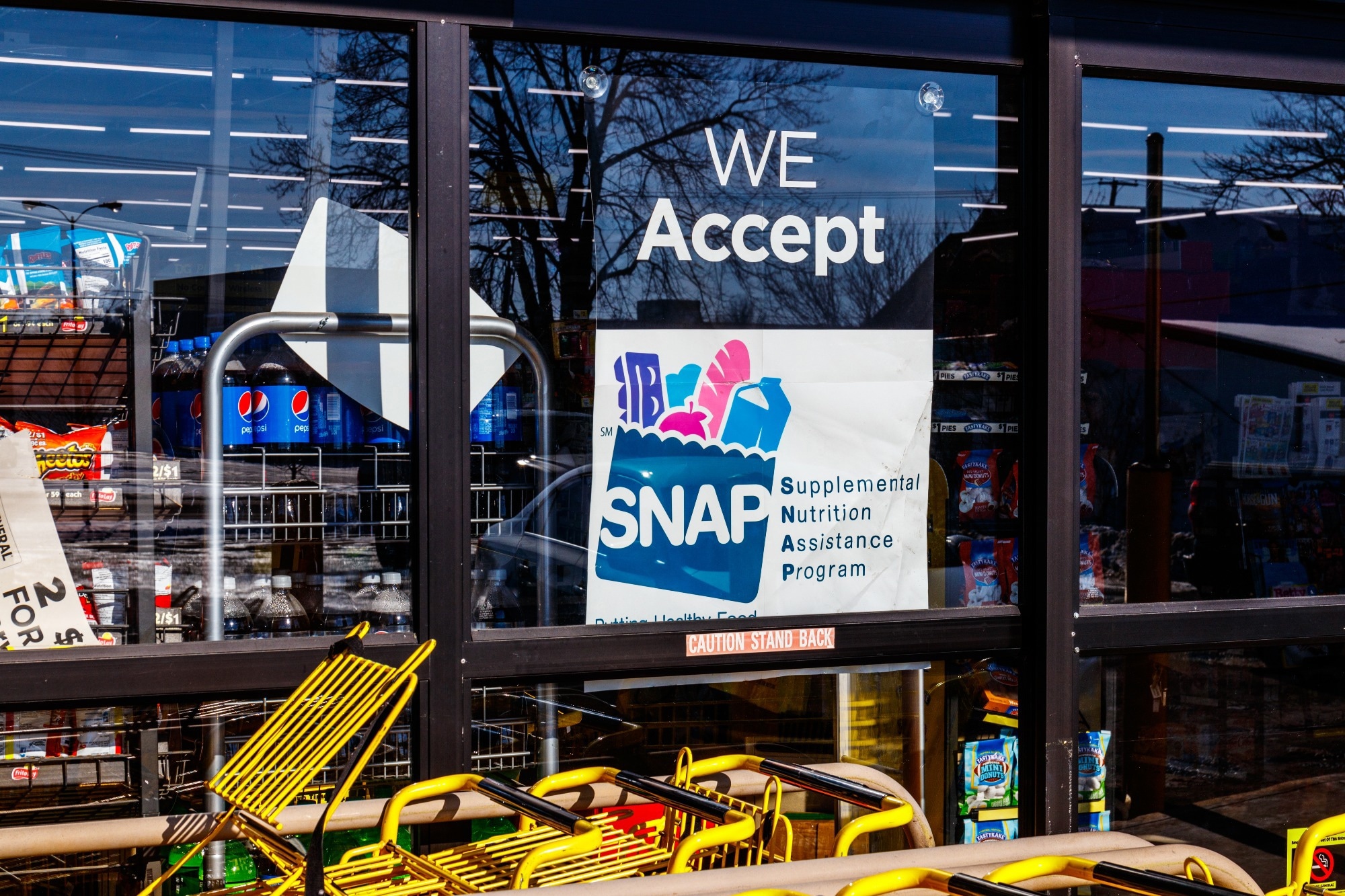A current examine revealed in JAMA community evaluated whether or not receipt of Supplemental Vitamin Help Program (SNAP) advantages can modify the results of meals insecurity on nonadherence to antihypertensive drugs.
 Research: Supplemental Vitamin Help Program and Adherence to Antihypertensive Drugs. Picture Credit score: Jonathan Weiss/Shutterstock.com
Research: Supplemental Vitamin Help Program and Adherence to Antihypertensive Drugs. Picture Credit score: Jonathan Weiss/Shutterstock.com
Background
Virtually half of Individuals at this time have hypertension, with about 1,000 deaths occurring day by day as a consequence of this situation.
In reality, the American Coronary heart Affiliation estimates that hypertension in America prices the economic system as much as almost $200 billion.
Folks with hypertension (BP) are in danger for a number of well being circumstances, each power and acute. These embody uncontrolled blood strain, cardiovascular occasions like stroke and coronary heart assault, and an elevated danger of dying.
Whereas blood strain might be managed by acceptable remedy, the affected person should adhere to the protocol and proceed to take the remedy for so long as required.
Excessive BP is handled by modifying the food plan, rising bodily exercise, and decreasing alcohol consumption. Nonetheless, if these measures fail to manage the BP, drugs are begun. Non-adherence with antihypertensive remedy is linked to hostile well being outcomes and hovering healthcare prices.
A number of elements contribute to noncompliance, comparable to affected person notion of their situation and of the efficacy of drug therapy, lack of communication, poor healthcare entry, monetary stress, and coexisting melancholy or forgetfulness.
One of many modifiable elements for remedy compliance is meals insecurity, as folks will prioritize meals above remedy if funds are restricted.
The Supplemental Vitamin Help Program (SNAP) is America’s largest social intervention program. It provides vouchers to low-income households that may be exchanged in direction of shopping for meals.
Its potential impression is estimated at as a lot as 16% discount in poverty, or 8 million folks. It additionally reduces the prevalence of meals insecurity by as much as 30%.
SNAP thus intervenes in two main danger elements for antihypertensive remedy noncompliance. Latest analysis on diabetic sufferers confirmed a discount in nonadherence to remedy due to monetary insecurity when SNAP advantages have been acquired.
Due to this fact, The present examine sought to know its position in bettering adherence to BP drugs. The analysis aimed to evaluate whether or not the discount in meals insecurity with SNAP mirrored in higher adherence to antihypertensive remedy.
What did the examine present?
The examine adopted a retrospective cohort design with almost 6,700 individuals. The info got here from the Medical Expenditure Panel Survey (MEPS)–Nationwide Well being Interview Survey (NHIS) dataset for 2016 to 2017.
Contributors have been assessed for whether or not they had acquired SNAP advantages over the previous 12 months, and their meals insecurity standing over the previous month. Self-reported use of prescription remedy was employed to seek out the chances of antihypertensive remedy use.
Of the individuals, 13% had acquired SNAP advantages over the previous 12 months, and 15% have been meals insecure. The imply age of the individuals was 63 years. Almost 72% have been White.
About 15% (one in seven) of the individuals mentioned they have been meals insecure through the previous month, in comparison with over 40% of those that acquired SNAP advantages. In distinction, solely 11% of non-recipients have been meals insecure.
About 56% of individuals on BP remedy have been nonadherent. General, receipt of SNAP advantages was not related to a big distinction in the usage of antihypertensive drugs.
Even so, nonadherence was lowered amongst those that used SNAP advantages 1-3 instances a 12 months than amongst nonrecipients.
Amongst those that used this system 4-6 or 7-9 instances a 12 months, in comparison with nonrecipients, nonadherence was larger general and among the many food-secure. Among the many subgroup who used SNAP 10-12 instances a 12 months, nonadherence was decrease by 11% among the many food-insecure however not the food-secure.
When stratified by meals insecurity, BP remedy non-adherence was eight proportion factors decrease amongst those that used SNAP advantages than amongst non-users.
Folks experiencing meals insecurity have been much less prone to keep on with their anti-hypertensive drugs whereas on SNAP in comparison with those that have been meals safe and on remedy for top BP. The distinction was 14 proportion factors.
What are the implications?
The findings counsel that “sufferers with hypertension who obtain SNAP advantages could also be much less prone to turn into nonadherent to antihypertensive remedy, particularly if they’re experiencing meals insecurity.”
This will likely level to the feasibility of utilizing SNAP to advertise higher compliance with antihypertensive drugs. Future analysis ought to study this risk utilizing potential trials or pure experiments.
The examine thus helps analysis on the utility of social intervention packages in modifying well being outcomes. No prior examine has checked out whether or not and the way meals insecurity modifies the affiliation between SNAP and BP remedy compliance.
Nonetheless, a couple of research demonstrated decrease nonadherence due to remedy prices involving all drugs in use in older adults.
As SNAP could turn into restricted in its attain within the close to future, the implications for nationwide well being ought to be examined in mild of those findings.
“Extra people and households are prone to expertise meals insecurity and could also be much less prone to refill drugs to deal with power illness.”
As a logical step, due to this fact, SNAP ought to be prolonged to hypertensive sufferers to cut back adherence to drugs, each for-cost-related and different causes.

